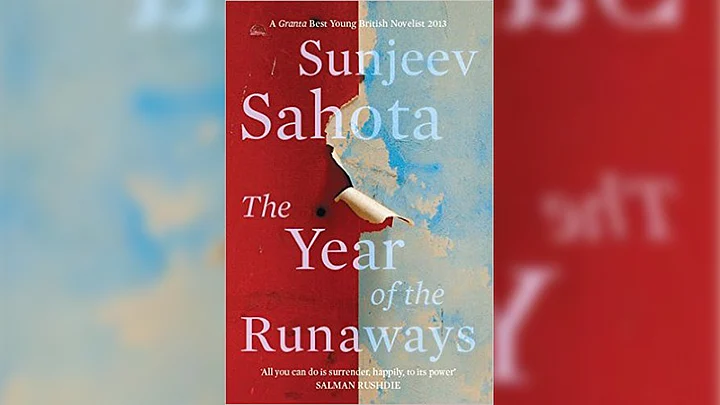It is a part of our Great Indian Parochial Prejudice – this immediate enthusiasm at seeing an Indian-origin name on a major awards list.
Sometimes, however, the Man Booker Shortlist and happenstance and said enthusiasm for Indian-sounding name will bring you to a moving, cleverly plotted, starkly real work like Sunjeev Sahota’s The Year of the Runaways and that is a very good thing indeed.
Sahota’s Novel Straddles the Shadowy Lines of Immigration – Between India and the UK
Like Sahota’s debut novel, Ours are the Streets (2011), this one too, is set in Sheffield, England. It traces the stories of a motley group of young men, immigrants (mostly illegal), struggling with a hostile world that holds no opportunities, offers no hope, makes no sense.
This Beckettian view of a post-theist world straddles two very different minds/landscapes. It shuttles between a poverty/tragedy stricken past in India and a present that is defined by a daily struggle, daily degradation. Sahota gives us a cast of four primary characters – Randeep, Avtar, Tochi and Narinder – and threads their lives together into a complex weft and warp.
Randeep, the son of a fallen-from-grace bureaucrat in India, Avtar, the older child of a middle-class family failing at everyday existence and Tochi, defined solely by his caste identity of a “chamaar”, all find themselves in the same shoddy, barely-together accommodation, working multiple jobs, desperate to make money. One is in England on a spousal visa based on a contractual marriage, another has sold a kidney and inveigled student status and the third is, from the very beginning, a “fauji”, an illegal alien.
The military metaphor for young men trying to stealthily acquire legitimacy in a world that doesn’t have any space for them is part ironic, part poignant. Into this mix, Sahota introduces Narinder Kaur, Randeep’s visa-wife – a British-Indian Gursikh trying to grasp at a larger, humanitarian meaning of religion.
Brit-Indian Sahota’s Knowledge of Caste Politics is Surprising
For someone born and brought up outside of India, Sahota has a surprisingly clear grasp of caste and class dynamics in the country. While his Bihar might not be an exact re-construction of the original, and his nuances of small town India are not quite finely-tuned, the sense of fear that the dominant caste exercises on those on the fringes is only too real.
So is the helplessness that Tochi experiences in the face of caste riots and the mindless slaughtering of his family. Caste, unlike class, cannot be shed, despite crossing the seas and moving across continents. Like the herringbone of scars on his back, Tochi carries his caste with him, everywhere he goes.
Sahota forces the reader to confront a world full of inequities – of caste, class and gender. There is infinite tragedy in the ease with which a lower-caste woman can be abandoned or “shared” amongst a group of higher-caste men. When Narinder, despite her over-protected, bubble-wrapped life experiences, is “shown” to a prospective groom or plucked out violently from the life she chooses for herself, it becomes impossible to ignore the insidious patriarchy that still holds in thrall most Indian communities, irrespective of geographical location.
In the bleak scape of the novel, women are to be seen, not heard.
The Immigrant’s Life is Often one of ‘Misdirected’ Rage
The searing quality of Sahota’s prose derives from his detailing of the migrant experience. The squalor, the lack of interpersonal boundaries, the aloneness, the fairly regulation exploitation in the form of confiscated passports, the absence of healthcare, are all issues that have tremendous contemporary resonance.
Unlike earlier fiction on migration – most of which engaged with identity as the primary trope to speak of experiences of dislocation – Sahota’s story focuses on the everyday – the mundane, that tears into all other concerns. Like one of his characters says, “What decadence this belonging rubbish was, what time the rich must have if they could sit around and weave great worries out of such threadbare things.”
At the centre of it, is rage. Rage at the system, often misdirected at each other. And a continual battering of whatever sense of identity remains. The Year of the Runaways is an unapologetic rendering of a flawed world. That perhaps, is what makes the story, its telling and its characters, so powerful.
Published by Picador India, The Year of the Runaways is priced at Rs 599.
(Saloni Sharma reads an absurd number of books each year and is hopeful it’ll become a paying profession some day. Meanwhile, she teaches Literatures in English at Kirori Mal College, DU.)
